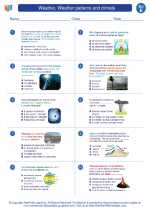Welcome to the Study Guide on Innovation
Innovation is the process of creating new or improved products, services, processes, or ideas. It involves coming up with creative solutions to problems or finding better ways to do things. Innovations can be small, incremental improvements or groundbreaking, disruptive changes that transform entire industries.
Types of Innovation
- Product Innovation: This involves creating new or improved products or services. It may involve adding new features, enhancing performance, or developing entirely new offerings.
- Process Innovation: This type of innovation focuses on improving the way things are done. It may involve streamlining production processes, optimizing workflows, or adopting new technologies to increase efficiency.
- Business Model Innovation: This type of innovation involves rethinking the way a business creates, delivers, and captures value. It may involve changing the revenue model, distribution channels, or customer relationships.
- Social Innovation: This type of innovation focuses on addressing social or environmental issues. It may involve creating new solutions to improve quality of life, promote sustainability, or address societal challenges.
Importance of Innovation
Innovation is crucial for driving progress and growth in various fields. It helps businesses stay competitive, improves efficiency, and fosters economic development. Furthermore, innovation leads to the development of new technologies, products, and solutions that can address complex global challenges.
Key Factors for Successful Innovation
- Creativity: Generating new ideas and thinking outside the box.
- Resourcefulness: Making the most of available resources to implement innovations.
- Risk-taking: Being willing to take calculated risks to pursue innovative ideas.
- Collaboration: Working with others to leverage diverse perspectives and expertise.
- Adaptability: Being open to change and willing to adapt to new circumstances.
Examples of Innovation
There are countless examples of innovation across various industries, including:
- The invention of the smartphone, which revolutionized communication and personal computing.
- The development of electric vehicles, which represents a significant advancement in sustainable transportation.
- The introduction of online streaming services, which transformed the way people consume entertainment.
- The implementation of telemedicine, which has expanded access to healthcare services.
Conclusion
Overall, innovation plays a crucial role in driving progress, solving problems, and shaping the future. By fostering a culture of innovation and embracing new ideas, individuals and organizations can contribute to positive changes in the world.
Now that you have a deeper understanding of innovation, take some time to reflect on how innovation impacts your life and the world around you.
[Innovation] Related Worksheets and Study Guides:
.◂Science Worksheets and Study Guides Fifth Grade. Weather, Weather patterns and climate

 Worksheet/Answer key
Worksheet/Answer key
 Worksheet/Answer key
Worksheet/Answer key
 Worksheet/Answer key
Worksheet/Answer key
 Vocabulary/Answer key
Vocabulary/Answer key
 Vocabulary/Answer key
Vocabulary/Answer key
 Vocabulary/Answer key
Vocabulary/Answer key
 Vocabulary/Answer key
Vocabulary/Answer key
 Vocabulary/Answer key
Vocabulary/Answer key
